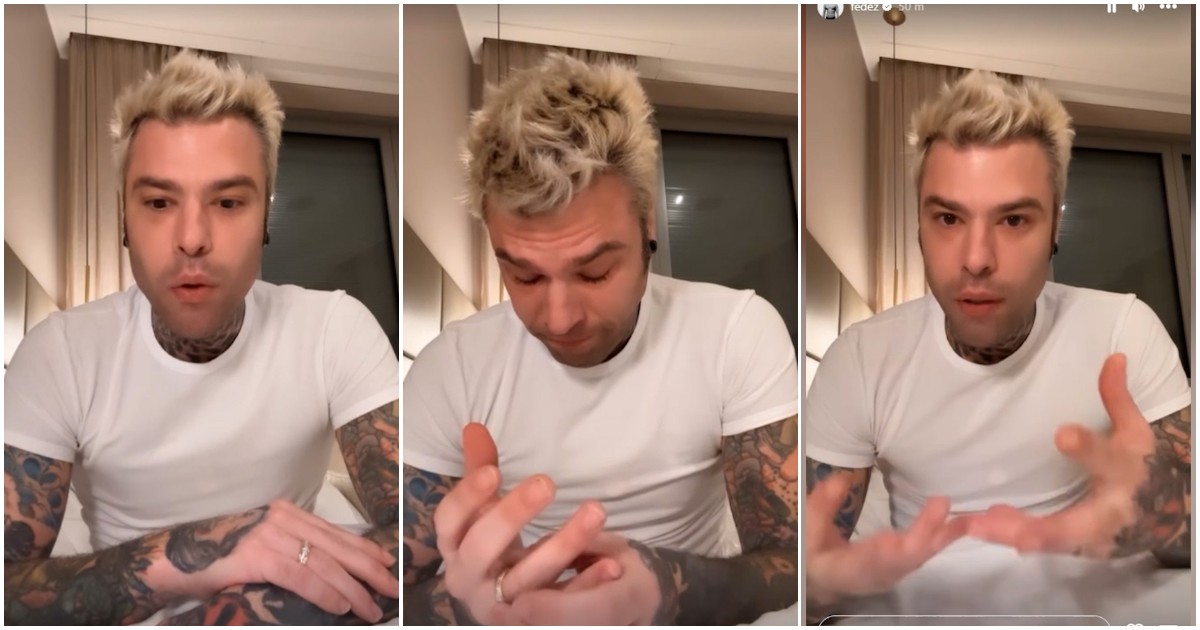
The analysis of Professor Claudio Mencacci, psychiatrist, emeritus director of neuroscience at the Fatebenefratelli in Milan and co-president of Sinfp
“Since January I have been taking a very strong antidepressant which has changed me a lot, it has shaken me a lot and given me very strong physical side effects to the point of causing nervous tics in my mouth, not allowing me to speak freely. For these reasons I stopped the drug without reducing it. It caused me something called the rebound effect,” Fedez said in one of his Instagram stories. What the well-known artist talks about is also called “treatment suspension syndrome”, it means that, “depending on the molecules present in the drug used, in 15-20% of cases, the appearance of a series of symptoms caused by abrupt suspension occurssuddenness of pharmacological therapy”, explains the professor Claudio Mencacci, psychiatrist, emeritus director of neuroscience at the Fatebenefratelli in Milan and co-president of Sinfp. “The withdrawal syndrome leads to the reappearance of the symptoms of the pathology being treated and other disorders such as muscle aches, mood worsening, irritability, tremors, shaky gait, headache, dizziness, crying spells… On a physiological level, abrupt termination of therapy leads to a change in the sensitivity of chemical neurotransmission systems or adaptations in the brain or other organs.
To deal with this eventuality it is important that the person following antidepressant therapy knows the duration of the treatment, “which can vary, for example, from one to five years. And if side effects appear – which can be normal at the beginning of the treatment and even last a few weeks – the patient must receive instructions from the specialist on how to stop taking the drug”, continues the expert.
But in the face of the onset of important undesirable effects of pharmacological therapy, how to behave? “Always under the advice of the doctor, a gradual decrease in the dosage of the drugs should be adopted which must be implemented within a few days, generally 3-4, helping the person to limit the side effects, possibly with other specific drugs. But I repeat, never abruptly stop the therapy”. It should also be emphasized that rebound is not a withdrawal reaction, as happens with alcohol or heroin addiction.
It should be noted that some types of antidepressant drugs are available that do not cause symptoms if they are suspended in therapy. “Vortioxetine, a multimodal antidepressant drug, has recently been registered. But I also remember fluoxetine (Prozac), sertraline and bupropion-based drugs which give less effects on suspension”, recalls Mencacci. The golden rule is therefore an effective doctor-patient relationship and the ability to personalize therapy. With a final caveat: “The vast majority of people stop taking the drug when they feel well. In reality, they have to continue it for a certain period of time”, underlines Mencacci. “If they do not follow this indication, they not only expose themselves to exacerbations of the pathology for which those medicines were prescribed, but favor the onset of rebound symptoms. And, above all, they risk making the therapy less effective once they resume taking the drugs indicated by the doctor”.